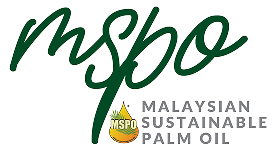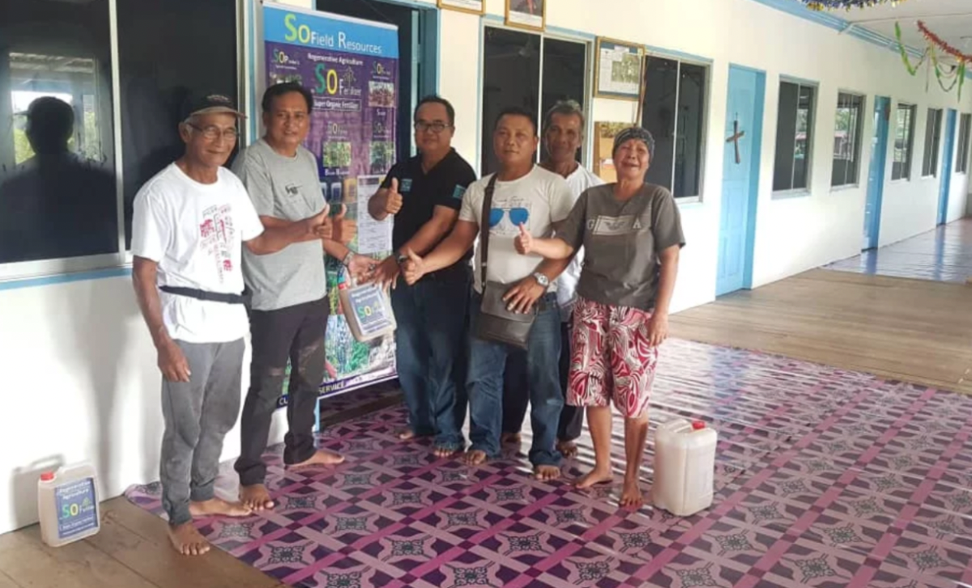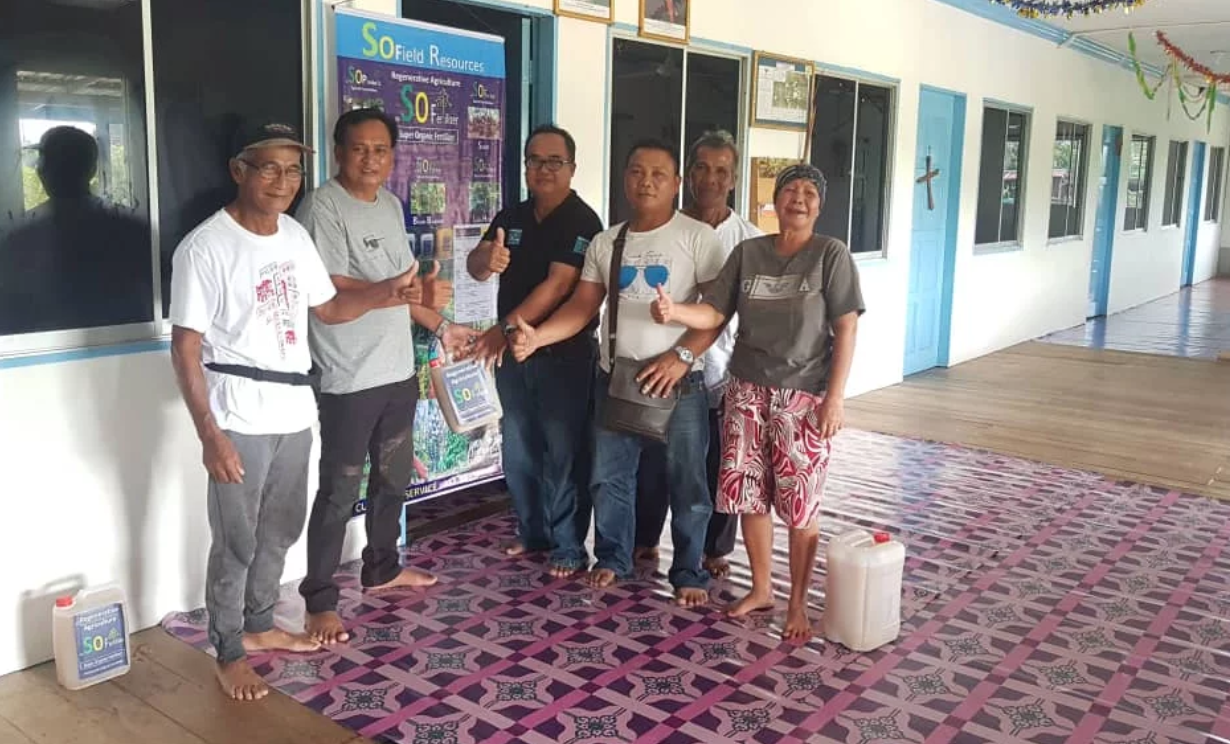
Ugak Sanggau is on a mission to bring regenerative agriculture to Sarawak. His efforts are producing doubled benefits in saving the local environment and enriching local farmers at the same time.
As a professional estate manager with thirty odd years’ experience in managing oil palm estates, his knowledge in best management practices is unequalled among the small holders in Sarawak. Testimony to this can be seen the cattle that are allowed to roam through his plantation serving both as weed control and natural fertilisation. It was his constant drive to do better that inspired his new campaign to introduce organic farming methods to his fellow small holders.
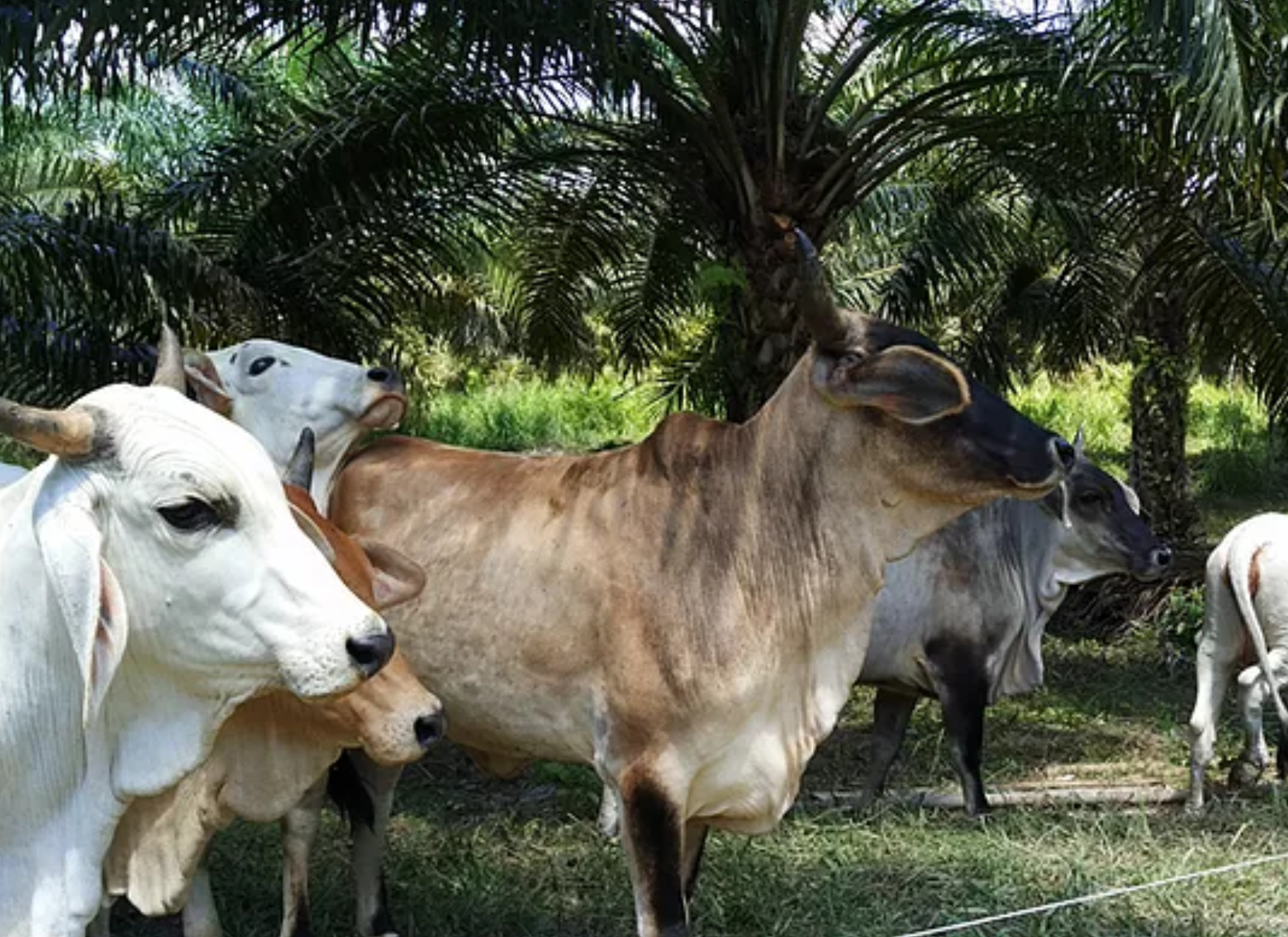
“I know the problems that the farmers face,” he told us when we met up with him in Miri recently. Being able to earn a living from the small farms was identified as a key challenge for small holders. After careful consideration, he identified the cost of fertilisers as low hanging fruit to improve income for small farmers.
He has spent the last two years formulating different mixes of organic liquid fertilisers. The immediate challenge to his project was the ability to produce organic fertilisers to meet commercial demand. This may seem to be overly farsighted, but Ugak had to know that he could create the supply if the demand he expected came around. Based on that reasoning alone, he started developing his recipes by using only what green or organic wastes were readily available around his farm and Miri itself. One of the best sources for green wastes turned out to the organic wastes from the local farmers market, which Ugak now relies on as a source for his organic liquid fertilisers.
A winning solution for small farmers
The success of his endeavors is now being used as a showcase of growing oil palm with organic fertilisers. Ugak took us around his farm and pointed out excitedly to the number of bunches on the trees.
“It’s not only how many bunches there but look at those,” he pointed to freshly harvested fruit bunches. “Not only are they big but they’re very heavy! When you are paid according to weight, the weight of the Fresh Fruit Bunch is just as important as the size!”
He could hardly contain his excitement when it came to calculating costs of fertilising oil palm farms for small holders. Using an average cost of 85 ringgit for a 50-kilo bag, he explained that a typical round of fertilising would cost the farmer 3.40 ringgit per tree per round.
In comparison, if the same farmer used the liquid organic fertiliser that he is now selling, the cost per tree per round is only 0.70 cents with harvests to match those of chemical fertilisers.
“It sounds unbelievable,” he told us as he pointed around his farm, “but here is all the evidence you need to see.”
Unbelievable was indeed the response when he tried to convince other farmers to use his fertilisers. He overcame part of the scepticism by coming up with a brand name, Super Organic Fertiliser and then developed professional packaging before starting out on an aggressive marketing campaign.
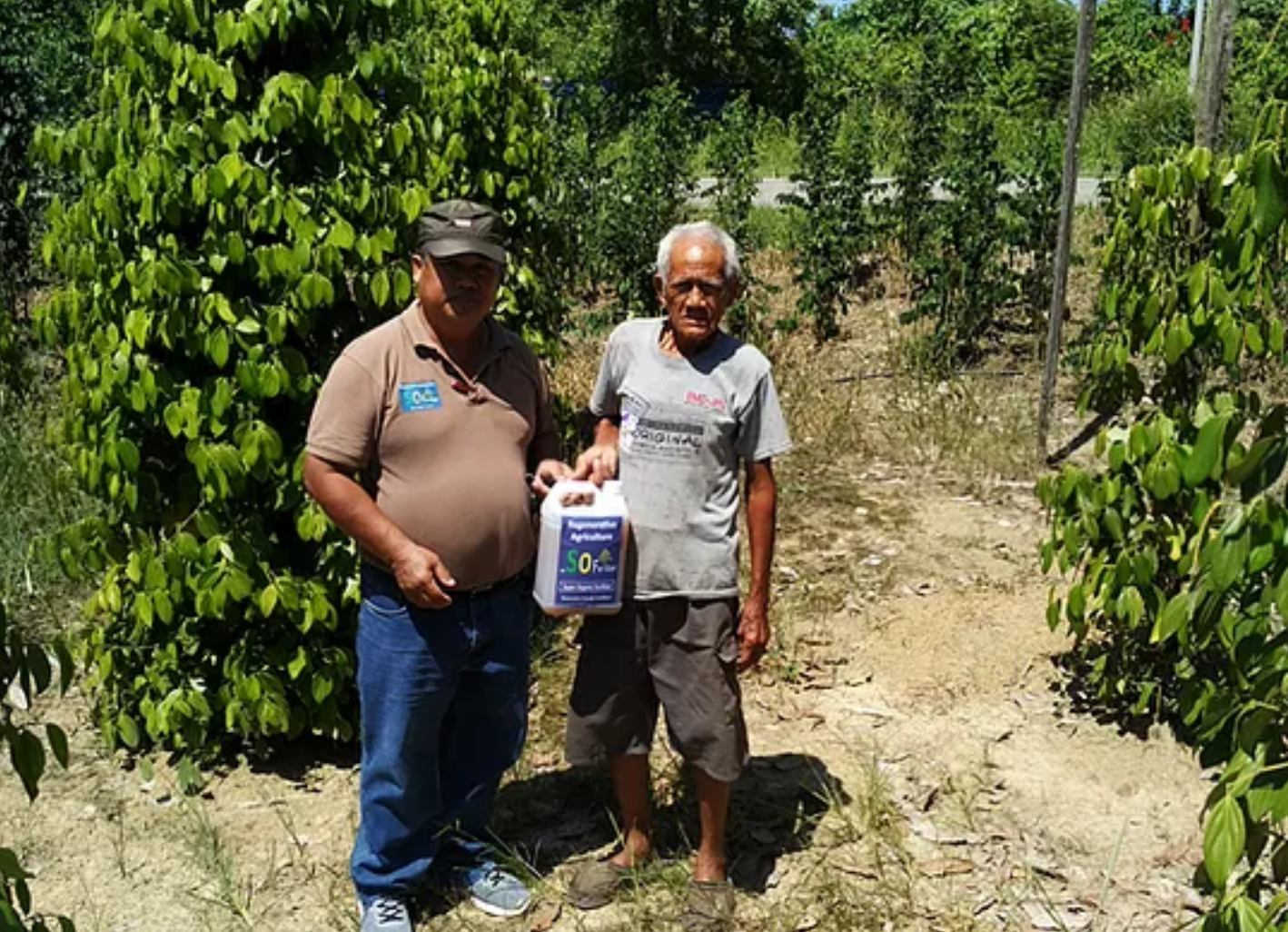
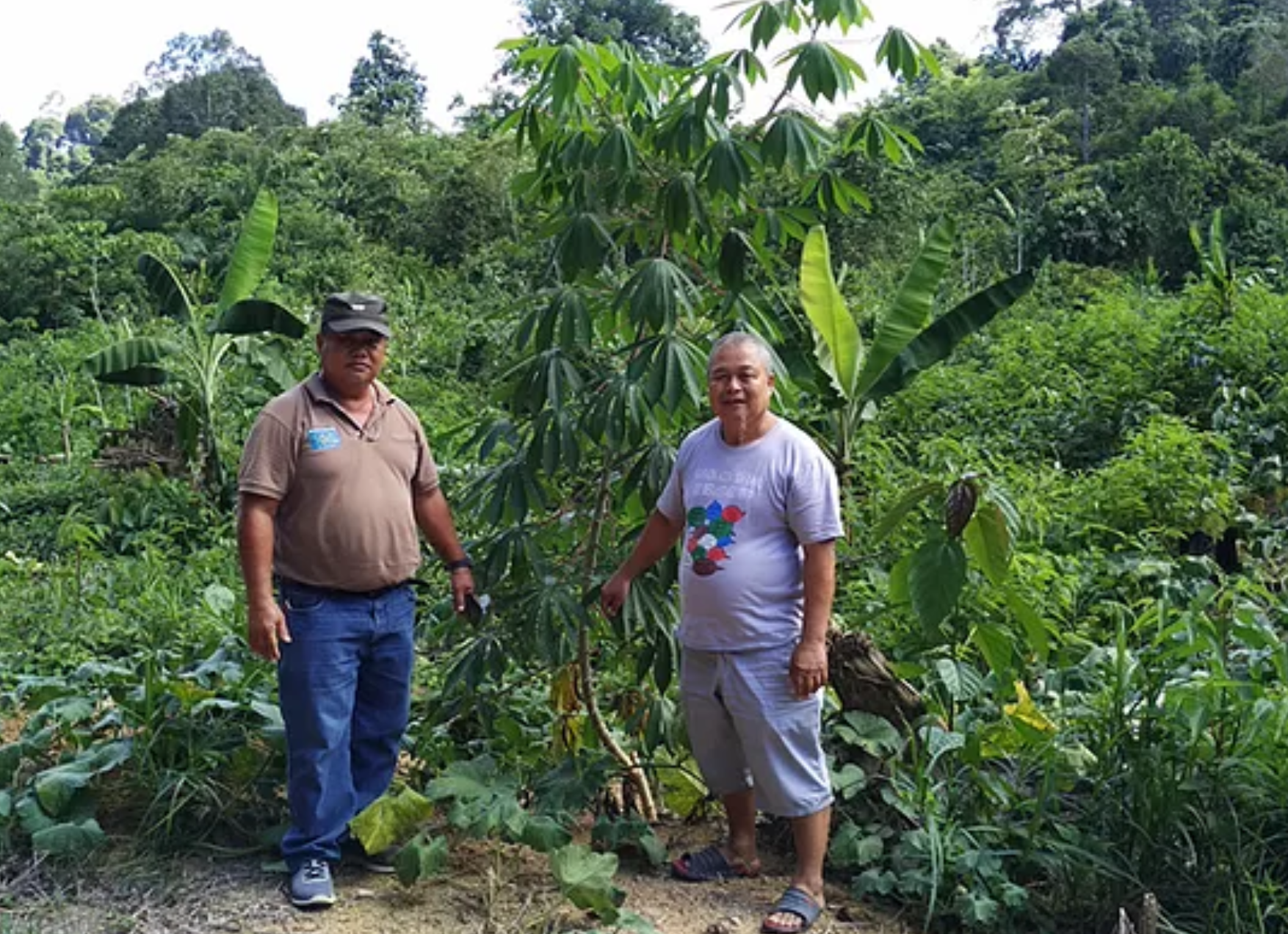
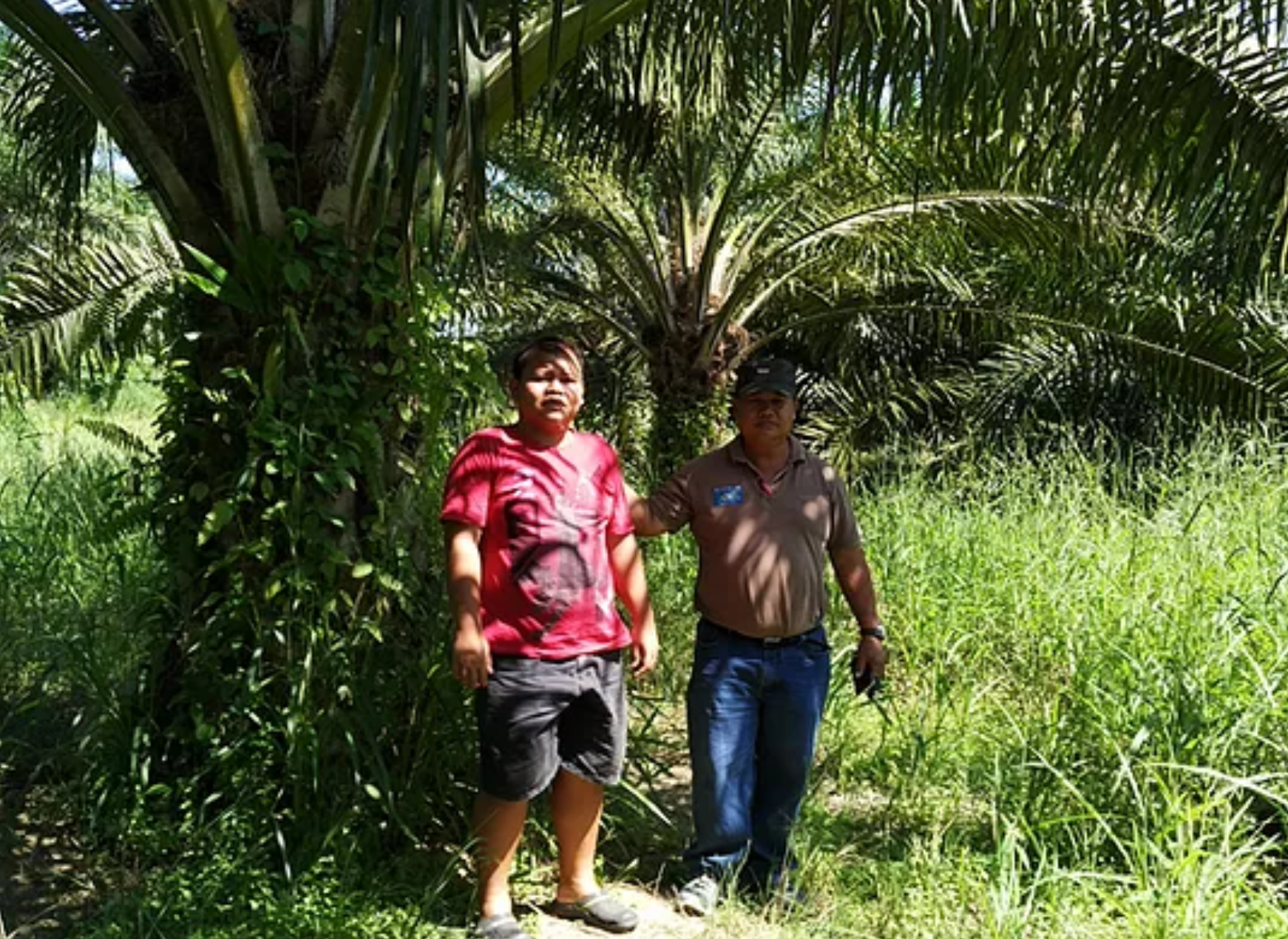
He brought us to meet Mr. Kapi, a farmer who has a thousand vines of black pepper as a cash crop on his farm. After two rounds of application of his organic fertiliser, the vines were flourishing with good leaf growth and multiple clusters of peppercorns. According to Ugak, he wanted to prove that his organic fertiliser would work equally well for pepper. Noting that Mr. Kapi’s farm was situated at a junction with high traffic, he made a deal to supply the fertilisers at no charge, in exchange for permission to install a signboard stating that the pepper farm used his fertiliser.
“This (the free supply of organic fertiliser in exchange for advertising space) is a lot cheaper than advertising on radio!” exclaimed Ugak.
He also brought us to meet another farmer, Mr. Bunyau, who owns a farm that grew mostly bananas as well as vegetables. Mr. Bunyau confirmed that he was able to save 3000 ringgit per year on fertiliser for his farm without sacrificing the quality of his harvests. That is a lot of savings for a farmer! Mr. Bunyau showed us a tapioca plant that had been fertilised with the organic fertiliser. The plant much taller than the rest of the other plants and had massive dark green leaves. Mr. Bunyau told us that this was one of the plants he tested to see if Ugak’s organic fertiliser works. Now convinced, he took delivery of another shipment of Super Organic Fertiliser the day we visited him.
The last farmer we met that day was Andi, a young Dayak farmer who manages ten-acre family farm that grew only oil palm. The results of using only organic fertilisers were similar to what we saw on Ugak’s own farm. Multiple bunches of fruits per tree. Andi who does his own farm maintenance was especially pleased with how the palm fronds were softer which made it easier to cut. The bigger harvests were a challenge as he now has to carry heavier loads at harvest time.
“What can you do?” he asked with a flourish of his arms, “we all need to cari makan (make a living) and this is my living.”
A winning solution for the environment
Making a living is obviously the most important thing for these Dayak farmers in Sarawak. The reduction of the chemical impacts of their farms on the environment was not mentioned once. They only saw increased earnings, but Ugak recognised the environmental benefits which was not surprising. This is after all, a man who asked us to take photos of the evidence of earthworms on his own farm!
We spoke about the Malaysian Sustainable Palm Oil certificates which his farm is being audited for and he raised a good point.
“We’re all happy that the Malaysian Palm Oil Board is paying the costs of certification and making small farmers aware of the dangers of chemical fertilisers and pesticides. But when you use my organic fertiliser which dictates no use of weed killers or pesticides, there are no fears of handling toxic chemicals so will we still need Personal Protection Equipment?”
We will let his auditors deal with that question.
